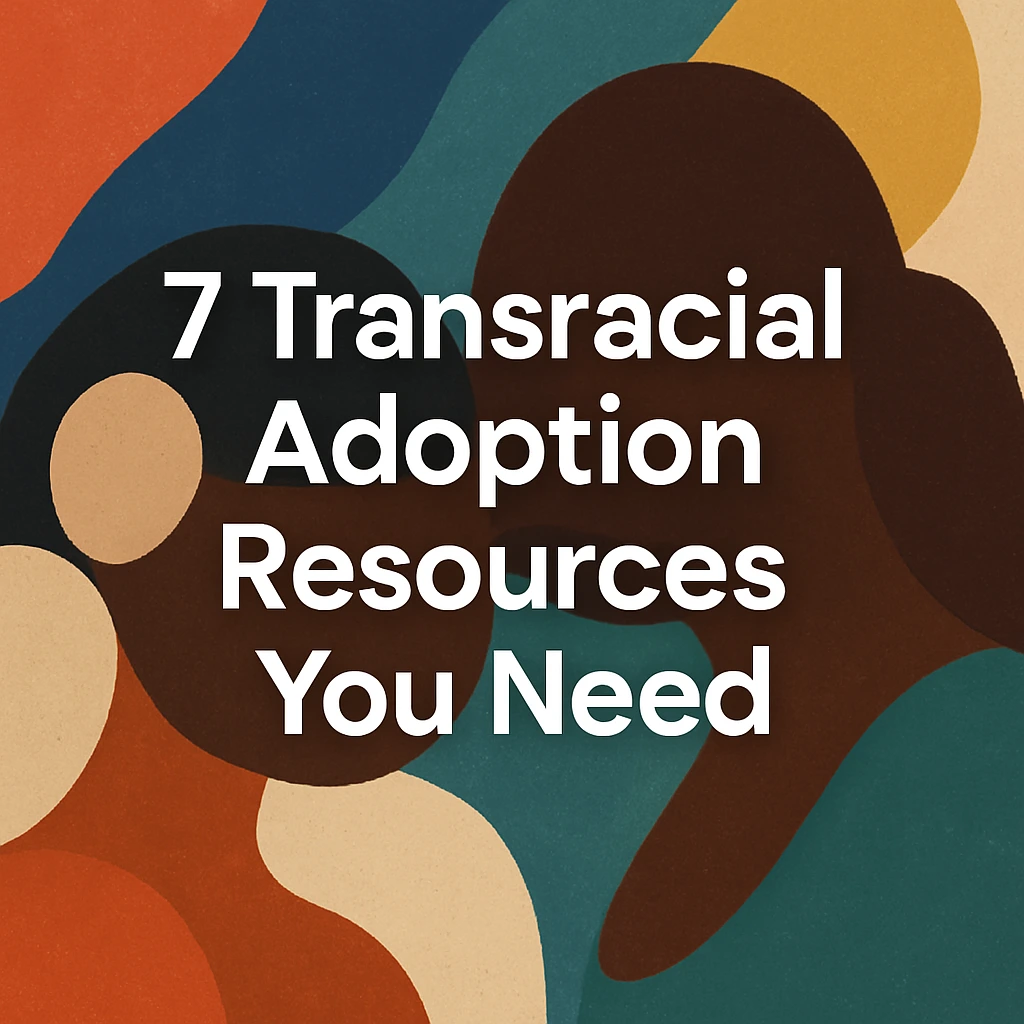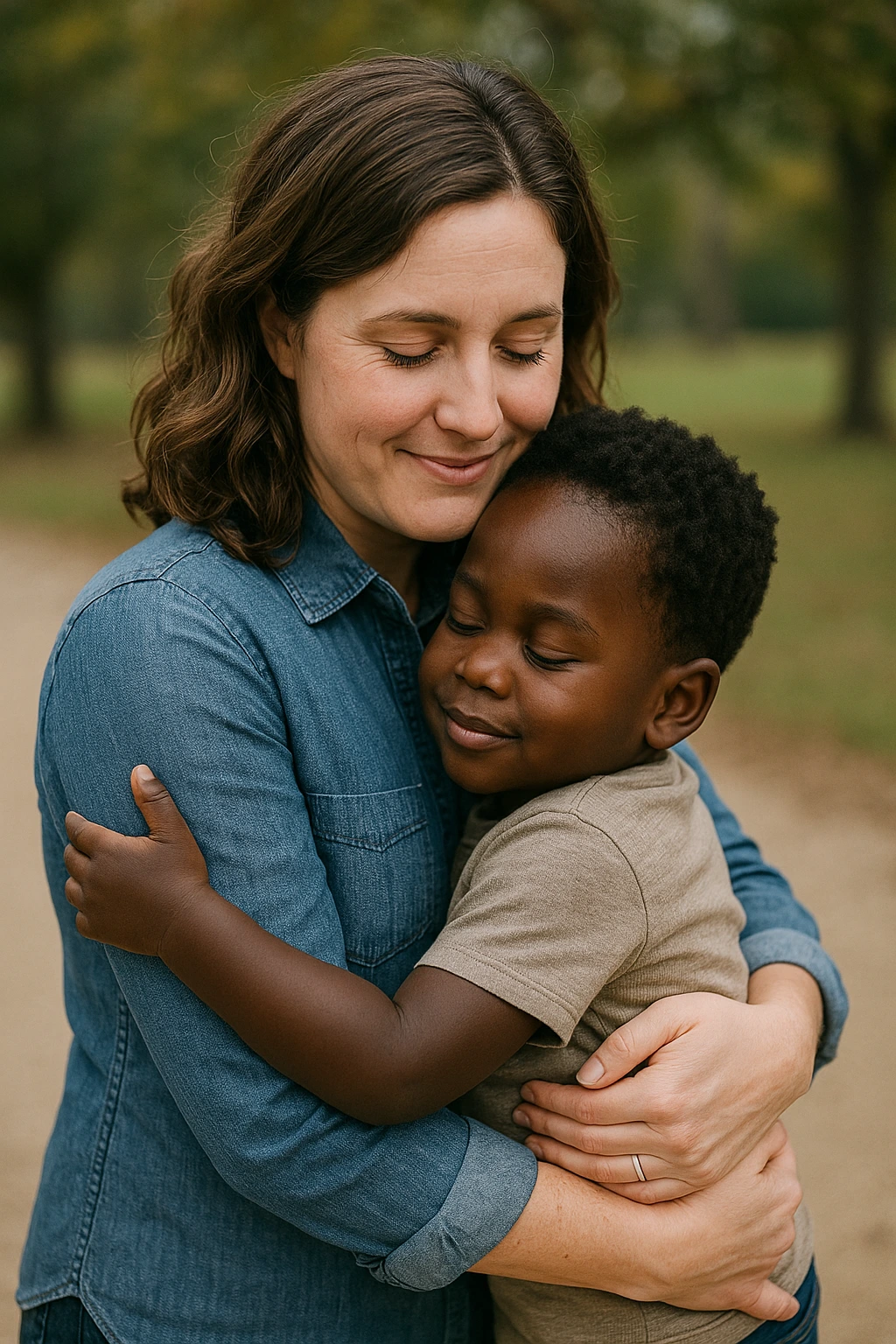7 Transracial Adoption Resources You Can’t do Without Now

Every year, lots of families embark on one of the most complex yet interesting journeys of transracial adoption, where love outstrips racial and ethnic boundaries. Although adopting across racial lines is an excellent idea, filled with hope and excitement, it also comes with some challenges that require specialized support and guidance.
It is not that easy to navigate cultural identity development, answer questions about heritage, or create an environment where children can embrace their full identity; It takes more good intentions and opportunity to access quality transracial adoption resources.
Whether you have chosen to go through racial adoption, in the process, or are already at the Verge of taking your child home, nothing compares with having the right tools. In this guide, we will explore all the essential transracial adoption resources to help you create a unique culturally aware environment, so your family can thrive perfectly and together.
What Are Transracial Adoption Resources?
Transracial adoption resources cover a wide range of specialized services, including educational materials, support systems, and community programs that are specifically designed to tackle the needs of families formed through cross-racial adoption.
These unique resources are necessary as they help to navigate the distinct challenges presented by transracial adoption. With these resources, families can easily navigate cultural identity development, address societal perceptions, and even maintain connections to a child’s birth heritage.
In this comprehensive support system, you are sure to get professional counseling services with expertise in cultural identity formation, adoption trauma, and get other educational materials that engender understanding of different cultures and traditions.
You could also get community programs facilitating cultural connections and peer support networks that bring families together with similar experiences. In transracial adoption, resources are also training programs for adoptive parents that help them develop cultural awareness and competency crucial for raising children across racial lines.
The importance of these resources cannot be overemphasized, as they help families with the required tools and knowledge for addressing complex questions about cultural heritage, identity, and belongings that arise in transracial adoptive families.
As they utilize this transracial adoption research, families can easily create environments where children feel relaxed and confident in their overall identity, while maintaining stronger family relationships.
Let’s dive in.
Transracial Adoption Resources You Can’t Do Without:
1) National Adoption Organizations and Support Networks:
National adoption organizations are another powerful transracial adoption resource you need, as they provide comprehensive support systems that will help you to easily go through cross-cultural adoption journeys without stress.
Organizations like the National Council for Adoption and AdoptUSKids offer specialized programs that address unique aspects of transracial adoption, which include cultural competency training and ongoing family support. These networks will connect you with experienced professionals who truly understand how complex it is to raise children across racial lines.
They also provide access to conferences webinars, and peer support groups specially designed for transracial adoptive families. Additionally, these organizations maintain extensive databases of local resources. That will also help you find community-specific support services and cultural education opportunities within their geographic area.
Many national organizations also offer crisis intervention services, aiming to provide immediate support when you encounter challenging situations related to identity confusion or discrimination. Their vast approach ensures that you have good access to both preventive resources and responsive support throughout your adoption journey.
2) Cultural Education and Heritage Programs:
Cultural education programs are another important transracial adoption resource you wouldn’t want to miss, because they help children maintain a connection to their birth family as they integrate into their adoptive families too. These programs provide structured learning opportunities about languages, traditional foods, and customs, etc that are relevant to a child’s ethnic background.
Many programs also join with cultural centers and community organizations to provide better experiences through workshops, mentorships, and festivals.
Heritage camps are specifically designed for children adopted across races, to have safe spaces to explore their cultural identity alongside peers with similar experiences.
One great importance of this initiative is that it helps children develop a stronger sense of self as well as appreciate both their adoptive family traditions and their culture. It also fosters healthy identity development throughout their childhood and adolescence.
The programs usually include family components, which ensure that you can participate in your child’s cultural learning journey and support their identity exploration.
3) Professional Counseling and Therapy Services:
Specialized therapeutic services are also among the essential transracial adoption resources you’ll need, as they address the unique psychological and emotional needs the adoptive families may have. The licensed therapist who specializes in adoption, cultural issues, and trauma provides important support that concerns racial awareness, and identity formation for adopted children.
These professionals are aware of the complexity of transracial adoptive families and can guide you with evidence-based solutions that can work specifically for any family’s circumstances.
The family therapy sessions will help parents create culturally active parenting strategies as well as provide children with all they need to address their identity-related issues.

Many therapists are also ready to provide group sessions where children adopted across races can connect to share their experiences and support each other to reduce feelings of isolation.
4) Educational Materials and Literature Libraries:
Comprehensive literature collections serve as crucial transracial adoption resources, as they offer age-appropriate books, educational materials, and research publications that can help you address different aspects of cross-cultural adoption. In this library, you can have different materials, including children’s books that showcase protagonists from various racial backgrounds.
This will help adopted children see themselves represented in literature, and the broader families will also learn about their different cultures through it. It also provides adoptive parents with powerful insights about the best practices for raising adopted children.
These materials also include other strategies like how to handle discriminatory situations, how to promote positive cultural identity, etc.
Many libraries also have a repertoire of autobiographical accounts by transracial adoptees, which offer valuable insights from those who have gone through similar journeys to provide practical guidance for adoptive families.
You may also get multimedia materials like podcasts, documentaries, and interactive learning tools with different learning styles for different age groups from the resources.
5) Online Communities and Digital Support Platforms:
You can’t talk about transracial adoption resources without mentioning digital support platforms. These digital platforms have made it possible for families across geographical boundaries to connect through online forums, social media groups, and virtual support networks.
They also made it much easier to access peer support groups and allowed adoptive parents to find encouragement, or share experiences during challenging moments. Specialized apps and websites also provide unique content like cultural celebration ideas, and directories of local multicultural resources.
Many of these platforms also feature expert-led virtual workshops and webinars to address common transracial adoption concerns, like handling racist comments and navigating school environments. These digital communities help to tackle isolation issues often experienced by transracial adoptive families, especially those who live in areas with limited adoption-related resources.
The ease of accessing these platforms has made them one of the most valuable resources for families with busy schedules or people seeking immediate guidance and support.
6) Community Cultural Centers and Institutions:
Community institutions and local cultural centers provide unique hands-on adoption resources that make learning possible through cultural engagement and immersive experiences. Community centers, museums, and cultural associations provide workshops, language classes, etc that help adoptive families build quality connections with their child’s heritage.
These institutions usually provide mentorship platforms where adoptees can interact with adults from their birth culture for guidance and as a positive role model. Many of their centers also host adoption-specific events that create opportunities for transracial adoptive families to connect in their community.
Music schools, art centers, and dance studios that specialize in specific cultural traditions are also available to help children learn important skills and appreciate their heritage, which helps them develop confidence in their cultural identity. These institutions often serve as a link between the broader cultural communities and adoptive parents, and facilitate meaningful relationships that go beyond formal programming.
7) Educational Workshops and Training Programs:
Organized educational workshops represent a general transracial adoption resource that equips adoptive parents with new skills and knowledge for better cross-cultural parenting. These programs encompass many topics, including culturally responsive parenting techniques and approaches for navigating discrimination and racism.
Workshop facilitators, including transracial adoptees and experienced adoptive parents, provide evidence-based strategies, and real-world insights to common challenges. Many programs provide continuous training opportunities because they know that transracial adoption presents so many challenges, as the adoptees grow and mature.
Certification programs are also good, as they show how committed to cultural competency parents are. The intensive weekend retreats provide great learning experiences that help develop family bonds and build necessary parenting skills. The workshops provide practical exercises and skill-building activities that ensure parents are ready for real-world situations they may have in the future.
Conclusions On Important Transracial Adoption Resources:
Building a successful transracial adoptive family is not an easy task, but it’s also not rocket science. You only have to be dedicated, educated, and have access to quality support systems. All the transracial adoption resources I outlined in this guide provide total support for families at every stage of their transracial adoption journey.
The truth is that these resources I listed here work effectively when it comes to creating a strong support network that navigates cultural, educational, and community needs, which are necessary for thriving transracial adoptive families. To succeed in transracial adoption is not just about loving and having good intentions, it requires continuous commitment and personal growth, so you can navigate raising children across racial lines.
By making use of these transracial adoption resources consistently and intentionally, you can create environments where your children will feel confident in their complete identity and secure in your family bonds.
Additionally, have in mind that accessing these transracial adoption resources is not a one-time activity, but a continuous process that evolves as your family changes and grows.
Each of these resources brings unique results that contribute to the overall success of your family’s happiness.
Take advantage of these transracial adoption resources to create a comprehensive support system that will address all aspects of your journey and ensure your family has all it needs to thrive in today’s diverse world.




